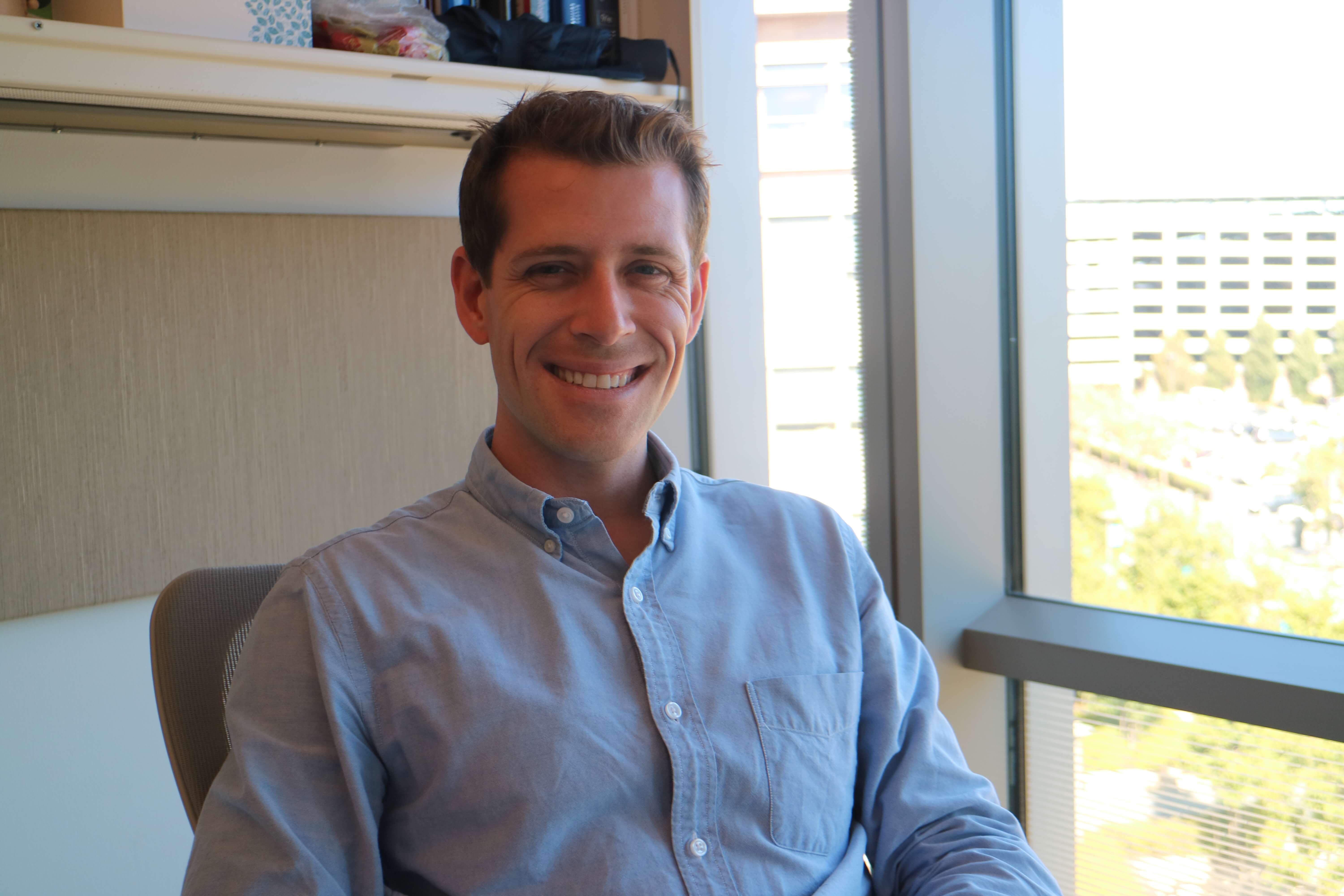
Q: In a couple sentences, tell me about what you do in your work.
A: The technical term for what I do is systems pharmacology. What this means is that we predict unexpected molecular targets of drugs. So, new drug uses come out of this as well as new understandings of drug side effects. Also, what we can do is we can look at big screens that people have already run. When we get compounds coming out of those new molecules, often we know that they have some effect but we don’t know why they are working. So my lab can come in and predict the actual mechanisms for how the molecules are working. It’s a nice pairing, because A) that helps us know which molecules might be interesting, and B) it helps the collaborators know how they are working. Also, my own background is actually in artificial intelligence and computer science. So we take a lot of those methods out of tech and out of the other fields that are really successful for things like face recognition, and we apply it to questions like drug discovery.
Q: What’s your favorite part about being a scientist?
A: The fact that everyday I get to do discovery. There is no shortage of interesting questions we get to work with. We are smart, interested and motivated people working on the coolest questions we can think of. You never know what a random hallway conversation might bring up. Things like that have launched entire directions of inquiry that you didn’t expect to work on when you came in.
Q: What have you created or discovered that you are most proud of or excited about?
A: I think one of the things that we’ve done is develop some methods to predict unexpected drug activities that are both used by pharma these days and also by the FDA. Additionally, for the last ten years, we’ve had a version of it up on the web that anyone can use for free. That’s been pretty cool and this is something called Similarity Ensemble Approach (SEA).
Q: At the end of the day, why does your work matter?
A: I think for me one obvious reason is because we’re both understanding drug side effects better and we’re also using this to directly find molecules that can become drugs, specifically for diseases where there are no treatments yet. So, it matters because it will result in molecules that, in people, will directly have an outcome. That is our core goal.
Q: Outside of work, what do you do to relax?
A: I run and I used to windsurf. I trail run, mostly. I don’t think anyone these days feels like they have that much time to relax, especially in the early days of starting a lab, which we’re only three and half years in right now. There is a lot.. a lot going on at once to get done.
Q: What situation do you think you’d feel the most out-of-place in? What is something that makes you uncomfortable?
A: I think, for instance, I have no idea how to play a musical instrument. So if I were performing in some sort of musical setting, that would probably be bad news for those listeners. I love listening to music myself, but I don’t know how to make it.
Q: In 100 years, what do you want to be remembered for? Or… How do you hope to maximize your time here as a scientists?
A: You know, I don’t actually care about being remembered.
Honestly, I hope that I do not waste the time. I hope that I am able to find out new things about the world. Science is a lot of effort… a lot of late nights and thinking about it and coming up with problems and questions and unexpected ways in which the world works. And so, what I want to make use of this time doing is charting some of the paths well and figuring out how the world actually does work and being right about that; not just trying to take a giant leap and hoping it’s right, but making sure that whatever path in the forest we trotted, we have sculpted out well and left good posts and markers for others who might even take turns in it that we never thought to do.
I would really like, not only to have laid down specific paths, but to have built a good framework for doing this, so that the way we do these paths and the way we tread them is something that we know others can do as well. We’ll see.
Journalism credit: Alexa Rocourt